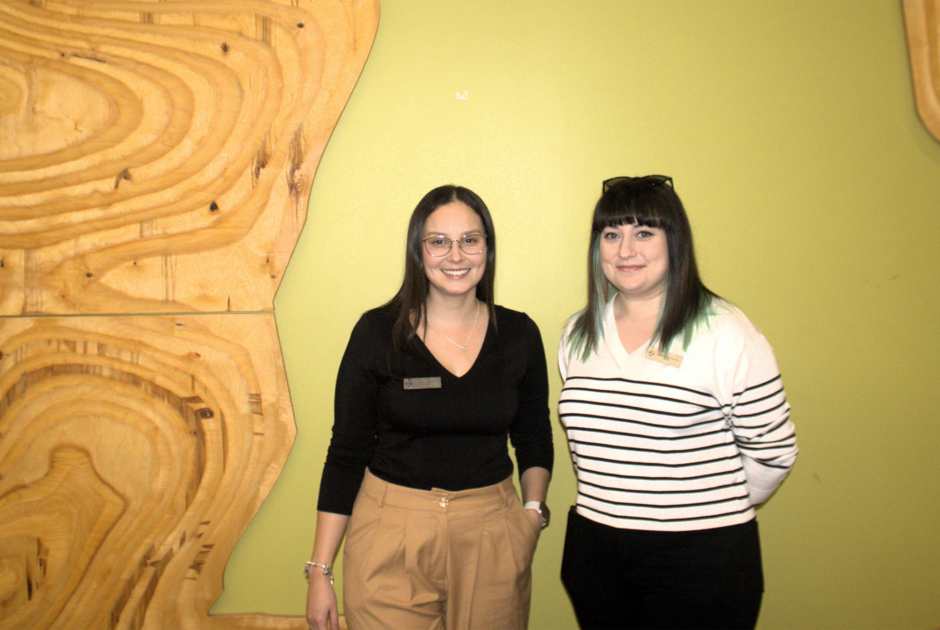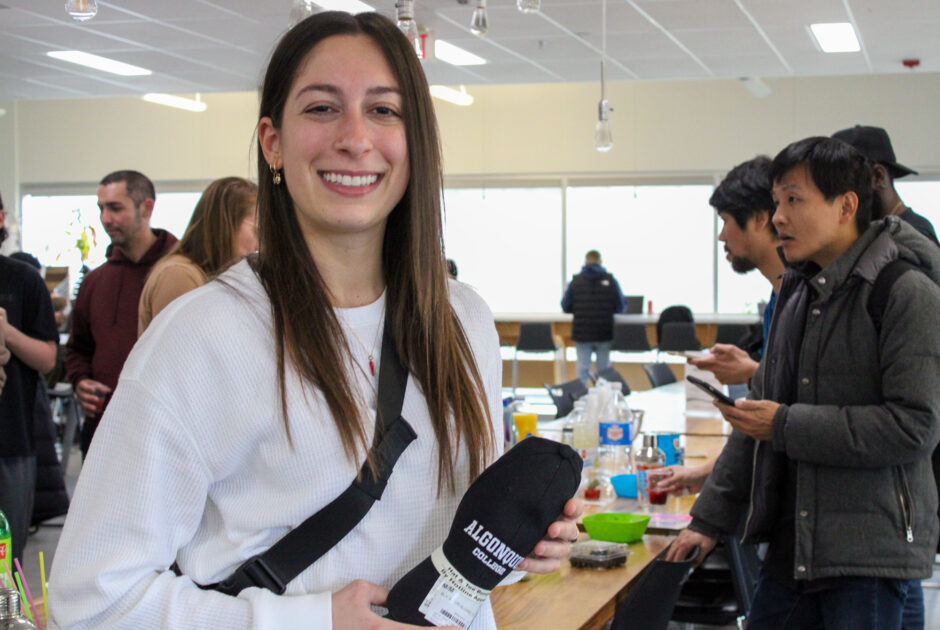Ten months into the college’s smoking ban, behaviours are changing

Outside of A-building across from College Square, some of the smokers from Algonquin College huddle around to light a smoke hoping security doesn’t catch them. The cold air is setting in, the leaves are changing and the students stand on the cigarette-butt-infested dirt just next to the sidewalk hoping that it’s city property.
Because since a smoking ban was introduced at the college on Jan. 1, cigarettes and vaping are forbidden on college property.
Since then, security staff have engaged with a total of 23,883 smokers. Some of these are repeating individuals. Most security run-ins result in the smoker re-locating or extinguishing the material.
Eleven infraction notices have been given out so far, which are only used when situations take place where there is a repeated non-compliance following ample re-direction by security.
Chris Lackner, a communications officer at Algonquin College, says that although the numbers are quite high with engaged smokers, many of these occurrences happen along the boundaries of the campus. The school has acknowledged a change in behaviour with less smoking occurring in the central parts of campus.
With new and returning students this new school year, the Security Services has engaged with 3,217 smokers, repeated individuals included. This number shows the decrease of approximately 36 per cent from March and April, which were the two highest months of engagement.
Over email, Claude Brulé, president and CEO, said that the college conducted extensive consultations with the community, including an online survey receiving more than 4,000 responses about the ban and whether it should be instated or not.
“The College endorsed a very moderate approach that focused on engagement and awareness with anyone who was not in compliance with the policy,” wrote Brulé.
Jess Carty, a second-year social service worker student, and Julian Lleida, a medical radiation technology student, are both smokers at the college who have experienced the negative effects of this ban.
Lleida believes that the ban only came to the college because of the legalization of marijuana and that the school did not want cannabis on school property.
Carty explains that the school should focus on bigger security issues than smoking because the ban is putting stress on students who smoke as they do not have enough time to take breaks in between classes. She said that students like to reduce stress after exams by having a smoke, but now they have anxiety about getting caught.
“It’s stressful though, we are all under a lot pressure,” said Carty. “There is bigger fish to fry in terms of security issues.”

Brulé was the senior vice president academic when the decision was made to make the college smoke-free. He fully supports the decision despite students’ problems with the ban and the challenges they now face.
Penny Reed, second-year social service worker, is not happy at all about the ban because she says that it is a freedom of choice that is being stripped away by the school.
Reed stated that the college is pushing smokers towards the park by the playground near kids instead of smoking on campus in a designated spot. Municipal bylaw officers have started to hand out fines to people found smoking around that area.
“I for one, hope he [Brulé] reinstates designated areas,” said Reed.
Although the ban is affecting the community park near the school due to the increase of smokers in the area, Brulé said that they are sympathetic to any concerns expressed by the community.
“That’s why we communicated with them ahead of our plans to become a Clean Air Campus, and we keep those communication lines open,” said Brulé.
Kendrik D’Aoust, a second-year nursing student, is in favour of the ban because he believes that smoking is a “victim-less” habit that should not be placed on non-smokers. He states it is damaging to others through second- and third-hand smoke.
“I don’t begrudge anybody who chooses that for their lifestyle,” said D’Aoust. “That’s their own choice but I don’t think that should then be affecting or pushed on others who chosen not to indulge in that lifestyle.”
Carty, Lleida and Reed see this ban as one that results in a lack of security for students, especially for women who must venture off campus to have a smoke at night in unsecured areas. They feel as if smokers are treated like second- class citizens at Algonquin.
“It’s the alienation and isolation and if we are looked at as lesser then what are we going to think of ourselves?” said Carty.








